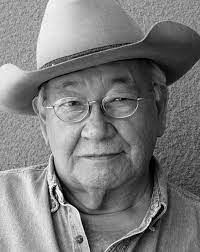
I’m in the habit, when I read a poetry anthology, of marking my favorites in the table of contents. When I pull the book off the shelf in need of a little protein boost of good poems, this helps in a big way. Instead of thumbing through an anthology randomly, I simply seek the starred entry and reference the page.
One such anthology I own is Garrison Keillor’s Good Poems: American Places. Keillor divides the poems into 15 sections, but these three are taken from the first, “On the Road.” Jack Kerouac would be proud. How about you?
Small Towns Are Passing
by Wesley McNair
Small towns are passing
into the rearview
mirrors of our cars.
The white houses
are moving away,
wrapping trees
around themselves,
and stores are taking
their gas pumps
down the street
backwards. Just like that
whole families picnicking
on their lawns tilt
over the hill,
and kids on bikes
ride toward us
off the horizon,
leaving no trace
of where they have gone.
Signs turn back and start
after them. Packs of mailboxes,
like dogs, chase them
around corner after corner.
The Sacred
by Stephen Dunn
After the teacher asked if anyone had
a sacred place
and the students fidgeted and shrank
in their chairs, the most serious of them all
said it was his car,
being in it alone, his tape deck playing
things he’d chosen, and others knew the truth
had been spoken
and began speaking about their rooms,
their hiding places, but the car kept coming up,
the car in motion,
music filling it, and sometimes one other person
who understood the bright altar of the dashboard
and how far away
a car could take him from the need
to speak, or to answer, the key
in having a key
and putting it in, and going.
Driving at Night
by Sheila Packa
Up north, the dashboard lights of the family car
gleam in memory, the radio
plays to itself as I drive
my father plied the highways
while my mother talked, she tried to hide
that low lilt, that Finnish brogue,
in the back seat, my sisters and I
our eyes always tied to the Big Dipper
I watch it still
on summer evenings, as the fireflies stream
above the ditches and moths smack
into the windshield and the wildlife’s
red eyes bore out from the dark forests
we flew by, then scattered like the last bit of star
light years before.
It’s like a different country, the past
we made wishes on unnamed falling stars
that I’ve forgotten, that maybe were granted
because I wished for love.
Good stuff, no? In McNair’s poem, I love the concept of white houses wrapping trees around themselves as you speed past them in the car. In Dunn’s it’s that stop-the-show line: “the bright altar of the dashboard.” And in Packa’s poem, I like “It’s like a different country, the past.”
Amen to that, and to the fact that we all own our own Fodor’s guide.







